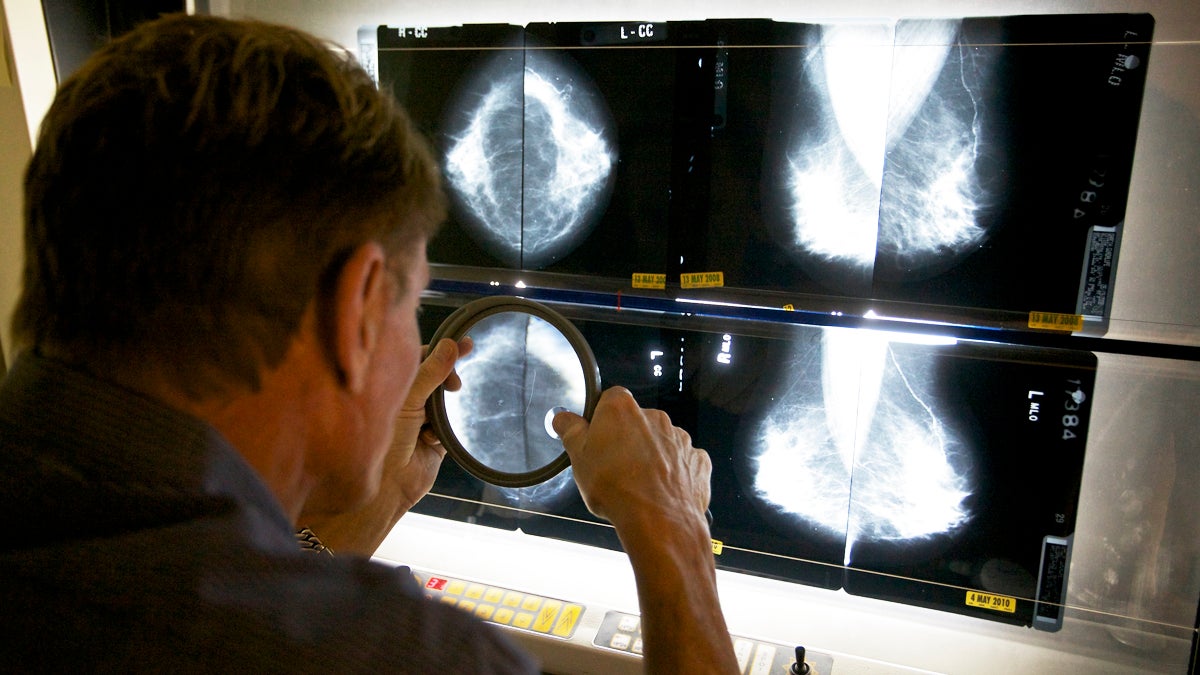Penn study identifies microbial signatures in aggressive breast cancer

A medical director radiologist checks mammograms. (Damian Dovarganes/AP Photo)
Keeping tabs on the different kinds of viruses and bacteria in your body might one day be key to early cancer detection and prevention.
In a new study, researchers from the University of Pennsylvania identified a large number of microorganisms that are common to aggressive breast cancer tumors but are far less established in normal tissue. The work suggests particular microbial patterns are markers of the disease and could be used for diagnosis.
Specific microbes, of course, have long been linked to cancer. HPV, for example, is the primary cause of cervical cancer, and H. pylori bacteria contribute to gastric cancer. But many more microbes could be playing a less obvious role.
“We really believe that viruses and bacteria might have a far greater prevalence and effect in cancer than we presently know,” said Jim Alwine, a cancer biologist at Penn and one of the senior authors of the work.
The team analyzed tumor samples from women with triple negative breast cancer, looking for traces of tens of thousands of microorganisms. Compared with non-cancerous samples from the same patients and healthy controls, the tumors had far more of many of the microbes. One subset of tumors was especially high in viruses; another in bacteria and fungi.
Along with some of the usual suspects — the herpes and hepatitis virus families, for instance — the search turned up plant and insect viruses.
“Every time you eat a salad, you’re ingesting zillions of plant viruses,” noted Alwine.
And nearly all of the tumors tested positive for a roundworm often found in cats and dogs. The findings were published in the journal Scientific Reports.
Erle Robertson, a professor of microbiology at Penn and the other senior author of the study, cautioned that the results do not necessarily mean the microorganisms are causing cancer. Some species might make it easier for tumors to grow only after cancer has already begun, or they might simply find tumor cells more hospitable.
“Seeing a microbial signature gives us a lot of information,” he said. “But the next step to say whether or not they actually drive the cancer would take a lot more years of investigation.”
Nevertheless, Alwine said, the microbial signatures might be handy in the clinic as diagnostic tools or as a way to direct treatment.
“Many of these bacteria could potentially metabolize drugs,” he said. “So knowing that they’re present might give an indication that a certain type of drug treatment is not going to be as effective.”
WHYY is your source for fact-based, in-depth journalism and information. As a nonprofit organization, we rely on financial support from readers like you. Please give today.

